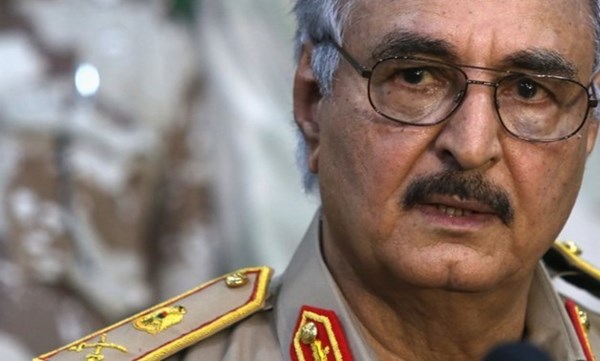Haftar’s army close to taking Tripoli with Russia’s help
General Khalifa Haftar’s Libyan National Army (LNA), supported by a number of countries, including Russia, is close to taking the city of Tripoli, UN Special Secretary for Libya Ghassan Salame told Corriere della Sera in an interview published on Sunday, December 8.
“Since the Russians joined Haftar’s forces, the offensive against Tripoli has intensified,” Salame observed.
Mohamed Siala, Foreign Minister of the Libyan Government of National Accord, has also mentioned the attack against Tripoli, noting that Russia is supporting Haftar’s forces with both personnel and drones.
Officially, Russia has dismissed the reports of its military presence as “rumors”.
“As for the rumors spread by our American colleagues… if we talk about the Mediterranean, take Syria. How many soldiers are there… armies of NATO states which nobody invited there?” remarked Russian Foreign Minister Sergey Lavrov. “But as soon as something happens, some Bellingcat or other non-government structure will inevitably put out articles that Russia is doing something wrong somewhere there.”
Libyan General Khalifa Haftar has been conducting an offensive against Tripoli since April. According to the UN, more than 1,000 people have been killed in the months since the start of the operation.
The 76 year-old General was previously an advisor to the Libyan leader Muammar Gaddafi, who came to power after the monarchy was overthrown in 1969 but was killed by rebels in 2011. Haftar became one of Gaddafi’s most influential opponents starting in the 1990s.
Haftar is supported by Egypt, the UAE and Russia.
In recent years, he has made multiple trips to Moscow to meet with Russian Defense Minister Sergey Shoygu, the most recent being in November 2018.
One of his meetings with the Russian defense minister was attended by the businessman Evgeny Prigozhin, who is linked to the Wagner private military company.
Early in November, The New York Times reported with reference to Libyan sources that roughly 200 mercenaries had arrived in Libya in recent weeks, as “part of the Kremlin’s extensive campaign to reestablish its influence in the Near East and in Africa”.
Russia’s Foreign Ministry denied the reports.
At the end of November, the US State Department accused the Russian military and Russian mercenaries of destabilizing the situation in Libya.
US Assistant Secretary of Near Eastern Affairs David Schenker said that there are “a considerable number” of Russian regular troops and Wagner mercenaries in Libya, which have been deployed in the country to support the Libyan National Army.
